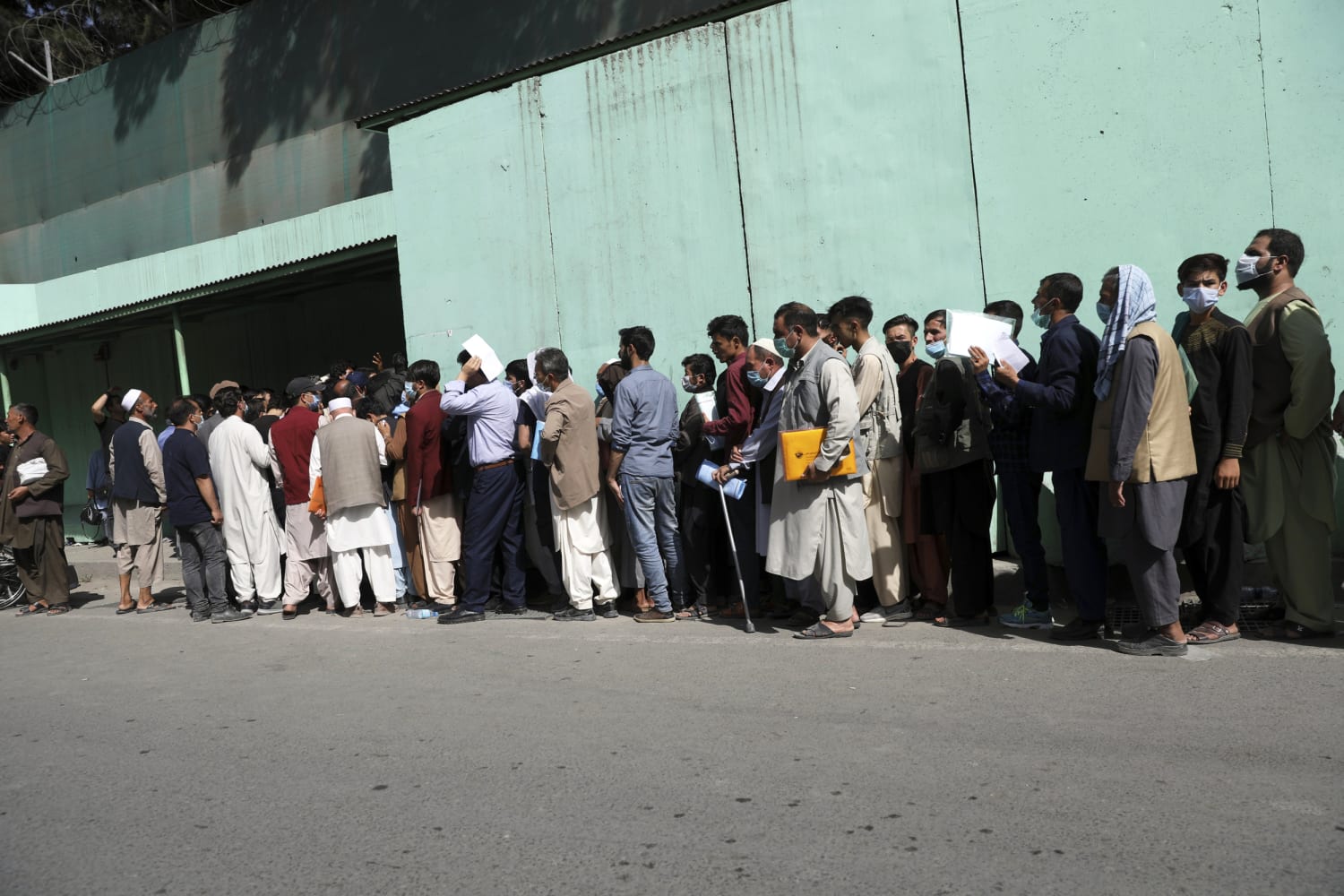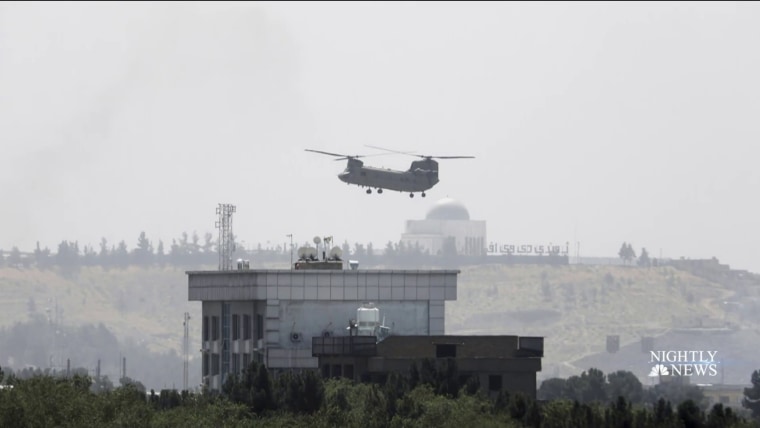For many Kabulis, the worst has befallen them.
The specter of the Taliban’s brutal and austere rule accompanied their fighters as they entered the Afghan capital Sunday. Many residents rushed to withdraw money and try to get passports and visas to prepare to hunker down or try to leave the country.
“It feels like the end of all my hopes, dreams and ambitions,” said Diyana, a Kabul resident who did not want her full name used for fear of retribution from the Taliban. “I cried so much today.”
The Taliban, who say they want to negotiate a “peaceful surrender” of the city, claim to have evolved from the harsh regime that ruled Afghanistan from 1996 to 2001 and all but eliminated women’s rights. But many residents of Kabul, which is relatively liberal compared to some other parts of the country, do not trust that they have changed.
A cacophony of background noise could be heard in telephone calls with people in Kabul — horns honking, sirens blaring. Residents said traffic had brought the city to a standstill as people rushed to join their families, pick up important belongings, such as passports and identification documents, and withdraw money from a diminishing number of working ATMs.
Extended families gathered under one roof, as if waiting for approaching extreme weather, according to two people who spoke to NBC News. Others were trying to leave the country for good, heading for the borders. Internet service was unreliable, Diyana and another person in the city said.
Diyana, 21, said that her father had left home to get money out of an ATM at around 6 a.m. and that after 3 p.m. he was still not back, as he was stuck in traffic.
As many considered leaving the country, Khaleda, 23, said her father had traveled to Kabul from Norway.
“‘I don’t want you there alone,’” he said, recalled Khaleda, who also did not want to use her full name for fear of being targeted by the militants.
In response to the Taliban’s presence, residents said men have begun accompanying their female relatives if they need to leave the house, and Khaleda said a cousin who is a doctor was too afraid to show up at the hospital Sunday in case she met militants en route.
Download the NBC News app for breaking news and politics
Many women in Kabul are terrified of living under the militants. A photo circulating on social media Sunday showed men whitewashing advertisements featuring women on the front of a beauty parlor in Kabul.
Diyana said she thought it was obvious that if the Taliban returned to power, they would begin to reinforce restrictions on women. Like many young women, she grew up enjoying the freedoms of life after the Taliban and dreads a transition to a culture that she has only heard about from older female relatives.
“That’s really the opposite of everything I’ve been hoping for myself during these years. I never wore a chadari, not my mother nor my relatives in Mazar or Kabul,” she said, referring to the Afghan equivalent of a burqa, whose all-encompassing blue fabric became a symbol of life under the Taliban. “I feel that if I wear that, it feels like I’m in prison.”
A Taliban spokesman said Sunday that those entering the city were unarmed on instructions from a senior commander. But later Sunday, the Taliban said in a statement that they had ordered armed fighters to enter the city and protect government property in case of looting.
“Kabul residents should not fear the presence of the Taliban fighters and our forces will enter Kabul peacefully without troubling any one,” the statement read. “Government and security officials should remain calm and no one will touch them.”
The incursion into Kabul came as U.S. forces rushed to evacuate staff members from the U.S. Embassy. NBC News witnessed helicopters flying in and out of the compound on a regular basis.
“I don’t trust them,” said Masiullah Zarghoon, 21, a law student at the American University in Kabul, referring to the Taliban. “If someone comes with guns, there is no trust. It’s all force.”
Zarghoon said he felt an immense responsibility to his parents.
“My mother and my father are not really OK, because they have been through this before, around 20 or something years ago,” he said. “They’re having flashbacks to those moments. They’re really scared.”
Delara Shakib, Ahmed Mengli and Matteo Moschella contributed.
Source: | This article originally belongs to Nbcnews.com










